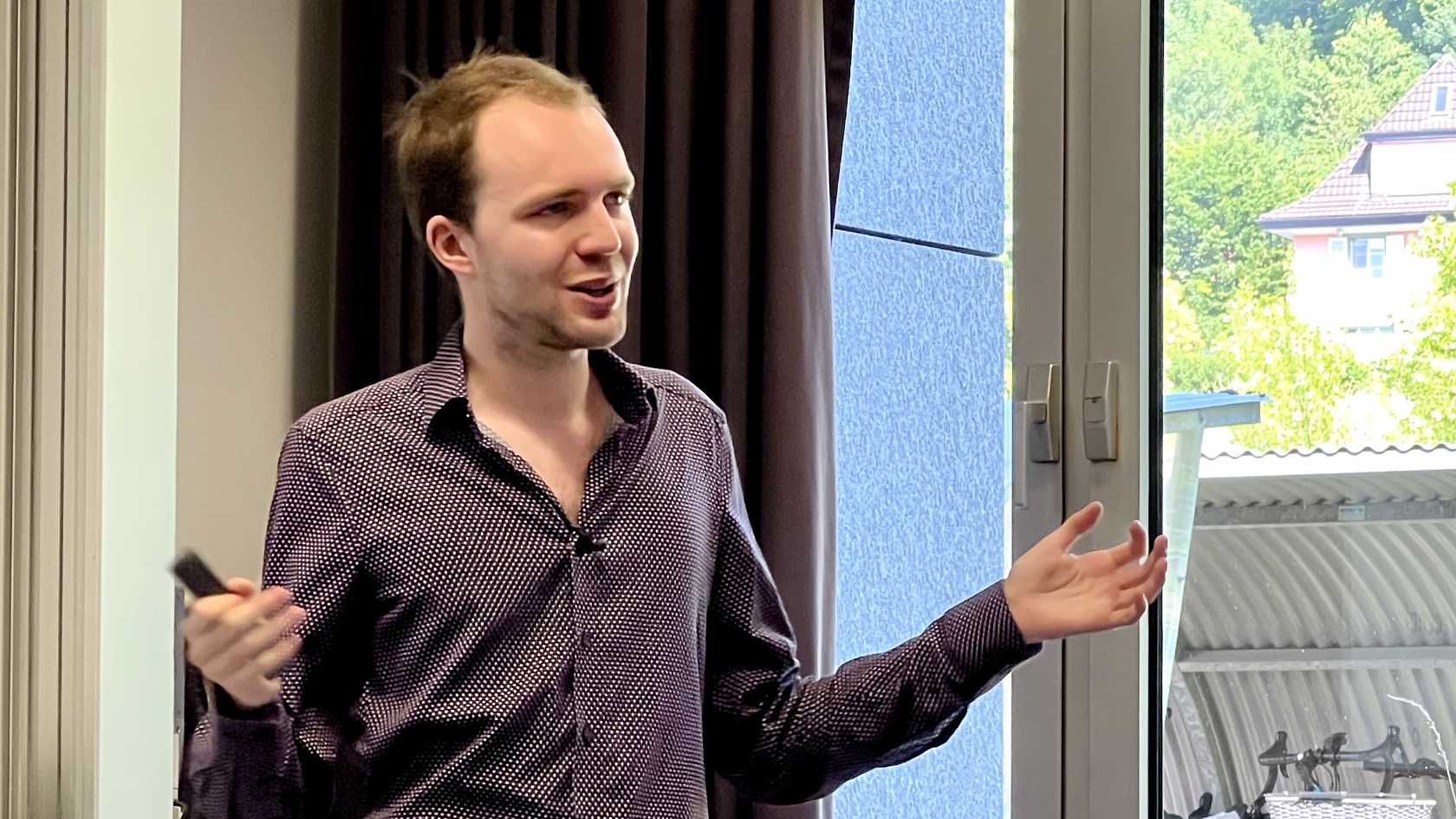“I’ve spent half my life at UZH”

You have been coming to the University of Zurich for 11 years. What has it been like for you?
Maximilian Janisch: I’ve spent half my life at UZH. It all got off to a great start when I was 10 years old: I was taught by Camillo De Lellis, who was a mathematics professor at UZH at the time. It was a very special collaboration that I’ll always remember. In 2018, I enrolled as a regular student and completed my Bachelor’s and Master’s degrees. I spent the last three and a half years working on my PhD thesis. It was a wonderful time, and I’m a bit sad to see it come to an end.
Which areas of mathematics are you particularly interested in?
Janisch: I’ve been involved in many fields of mathematics for a long time. I particularly like analysis and probability theory. I worked on topics from these areas in both my Master’s and my PhD theses.
Could you explain that to a non-mathematician like me? What do you like about these areas of mathematics?
Janisch: That varies between analysis and probability theory. What is perhaps similar in both areas is that there’s a special way of doing calculations. I like this approach because you take many steps that are connected in ways that are not obvious. This gives you a lot of freedom to find good arguments. Both fields also have in common that, although purely theoretical, they’re also well suited for practical applications. Hydrodynamics, quantum mechanics and classical mechanics all use differential equations from analysis. And probability theory, on which statistics is based, flows into artificial intelligence, for example.

Academic career or industry? I can see myself doing either, because I’m interested in both pure and applied mathematics.
Were there any challenging moments during your studies or while working on your PhD thesis?
Janisch: Yes, there were a few. Less so during my studies, though. The worst thing that could happen there would have been to fail an exam. With a PhD thesis, on the other hand, you have much more freedom, but you also have to work more independently. That was stressful for me at times. Sometimes I felt that my research didn’t yield the results that I had imagined. Then I was my responsibility to change that.
How did you cope with such situations?
Janisch: I didn't use any special techniques; I just tried to overcome the frustration and keep going – I just refused to give up.
You must have often been the youngest person in the lecture hall or in the office. What was that like for you?
Janisch: Today, it’s not such a big issue for me. When I was younger, I felt it more strongly. I was 10, while the others in my class were around 13 and had already entered puberty. They were at a completely different stage in their lives. Over time, that changed. Today, some of the people I work with are much older. But we share similar interests. And the students I encounter are around the same age or even a little younger.
Any plans for the future?
Janisch: First, I’ll be doing a 10-week internship at a financial services company in London. What comes after that isn’t set in stone yet. Should I pursue an academic career or move into industry? I can see myself doing either, because I’m interested in both pure and applied mathematics. My decision will also depend on how the internship goes. For now, all paths are open.